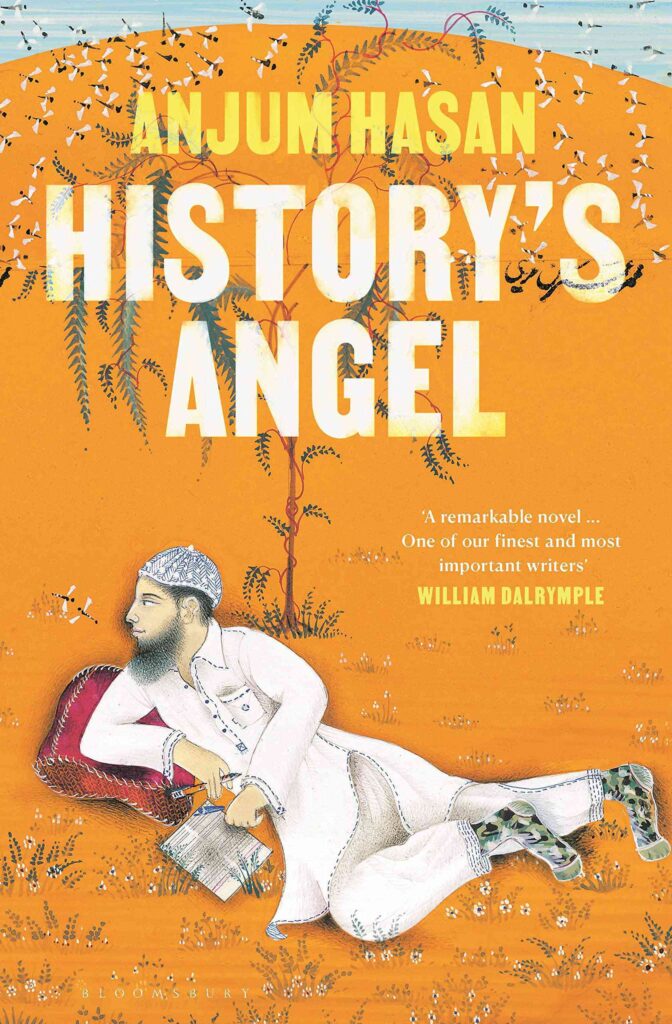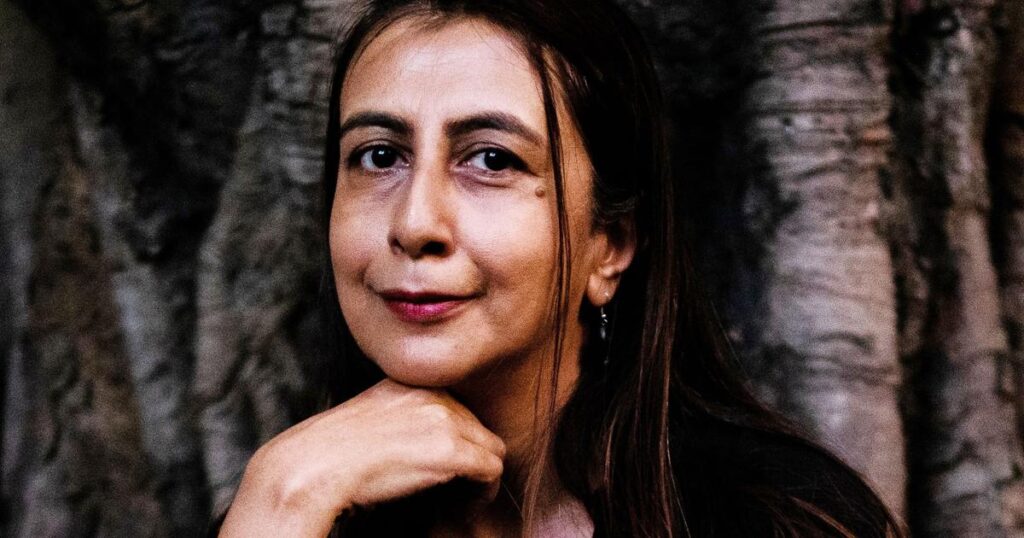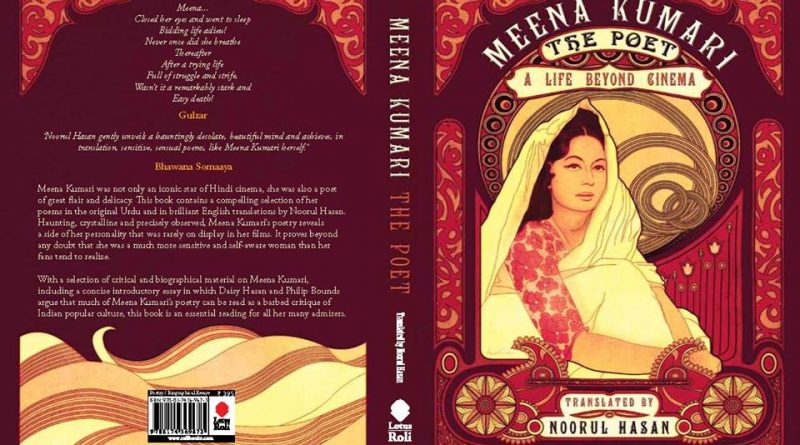New Delhi / Shillong, MEGHALAYA / Bengaluru, KARNATAKA:
Anjum Hasan’s novel considers what it is like to live in troubling times.

Living in an ancient city is like living in two time periods – the present (when you are alive) and the past (when the city was alive and you were not). It’s a strange conundrum. In a city like Delhi, where Alif from History’s Angel lives, the past creeps into the present in ordinary, mundane ways. There’s Humayun Tomb to visit, the Red Fort that you see on your way to work, the ruins of Tughlakabad where people reside…the city of Delhi is effortlessly ancient and ever-expanding. And what about the intangible past – the memories of what Delhi used to be, the violence that ravaged it and the unexpected friendships that were born in dire times, the natural seat of power that stood strong even as the city exchanged hands between emperors and regimes? History is a double-edged sword – there’s pride in continuing the legacy and there’s a burden of living with its failures.

Anjum Hasan’s latest offering, History’s Angel considers what it is like living in Delhi in troubling times (something the city always seems to be in). Alif teaches history to students aged between nine and 14 at a private school. He believes in history – its nuances, nonlinear existence, and its ability to make its students upright, empathetic people. But Indian school education system does not care for holistic scholarship. As long as the students successfully mug up facts and figures and hurl them onto the answer sheets, the teacher’s job is done. But Alif has bigger aspirations – he wants the children to understand and appreciate history in all its complexity. And in striving for this noble goal is where the trouble begins.
Humayun, Hanuman, Hindustan
Hell breaks loose when nine-year-old (upper caste Hindu student) Ankit Kumar disappears from his sight on an excursion to Humayun’s Tomb. Alif imagines the worst, but after a brief period of great anxiety, Ankit is finally found. Overcome with relief, Alif is only too happy to indulge the child when he seeks permission to ask a question. Only it is not what Alif was expecting.
Ankit asks his teacher, “Are you a dirty Mulla?” Perhaps before Alif could even make sense of the child’s question, he reaches for the boy’s ear and twists it. Corporal punishment is a punishable offence – as it should be – but in this case, it is something of a reflex action. Alif is stunned and he feels helpless.
Always keeping himself out of the way of trouble, and with his faith dialled down to the minimum, Alif does everything he can to be a “good Muslim”. However, the India he lives in is not so kind. The story, as it moves from one tongue to another and one imagination to another, takes a grotesque form. The final version is this: Ankit disappeared after Alif insulted his god Hanuman and threatened to throw him out of the rickshaw. In the absence of any reliable eyewitnesses, it is Alif’s words versus the majority’s hostility which is ever ready to exaggerate the failings of Muslim citizens.
The school where Alif teaches is a mini India. There are people of all faiths and cultures but one seems to be quickly taking precedence over the others. Alif wonders why the children stopped singing Muhammad Iqbal’s Saare Jahan Se Achcha in the assembly, why the principal was conducting a havan on the school premises, or why history lessons on Muslim emperors were no longer essential. The principal clearly instructed him to not bring religion into the school – visits to Humayun’s Tomb etcetera – while Hindu traditions were proudly being paraded as the culture of the country. Alif can see the gradual shift from Iqbal’s Hindustan to the narrow-minded, saffron-tinted Bharat. And so can we.
The state of any minority in our country has never been worth much and now, even more so. The hostility and open call for violence is not just encouraged but rewarded. The news cycle works on repeat – lynchings of Muslims, the murder of an untouchable, a Kashmiri’s freedoms curbed, a journalist attacked or jailed, a farmer dead from suicide. And screaming news reporters who are oblivious to it all. An endless, vicious cycle that sucks the common man dry. And it is in this soul-sucking, gut-wrenching India that people like Alif and his wife Tahira strive to be perfect (Muslim) citizens.
Horrors, hounding, humiliation
Simple things like renting a house become an impossible dream as brokers ask the couple if they slaughter goats at home and tell them – feigning kindness – that there are no mosques or madrasas nearby. Tahira and Alif are made to participate in humiliating interrogation – they are not only questioned about their faith and eating habits but made to answer for Muslim invaders and also those who stayed back. The fact that these events happened many centuries ago and the “invaders” had long since integrated with the Indian peoples is immaterial.
The indignity that Muslims are subjected to in India is one-of-its-kind. Disparaging remarks are always at hand and fingers are quick to point to Muslims when something goes wrong in the nation-state. Alif’s mother says stoically, “Things are bad…but if that is what’s bothering you then forget it. Because it is not new.” It is not new. Through the elderly lady’s voice, Anjum Hasan tells us that this has always been the reality of being a Muslim in India. It always has been humiliating. Of course, things have become alarmingly bad in the last decade, but none of us should think even for a moment that India was a secular haven before.
Alif’s is an interesting characterisation – his history teacher persona makes him acceptable as an upright citizen. In India, a teacher exists beyond the classroom – they are considered quite literally a “guru”. In the same way, Alif exists beyond the textbook. He contemplates the Sufi way of life, sorrowfully remembers the demolition of the Babri Masjid and the violence that followed, and imagines the horrors of the Partition.
Not just the past, Alif must also answer for the loud azaan and “land jihaad” of the present. It’s a life of questions and interrogations and like most of us – any of us – Alif does not always have an answer. He is no more responsible for the actions of Muhammad Ghori than Hindus are for the pillaging and killing that many kings of their religion were known for. But only one of them is allowed to cut the cord from the notorious past.
While Hasan easily incorporates the past in her portrayal of the contemporary Indian Muslim, the figures and events of this past can sometimes be distracting. The nine-year-old child who gets the wheel turning on Alif’s ruination fades into the shadows – how did the child become so hateful, what made him falsely accuse his teacher, and why did he not fear being punished? I wanted to know more.
Ahmad, a minor character in the novel, is a devout Muslim. And being devout often means enforcing one’s personal beliefs on others. He complains that Alif’s family “shirks shirks shirks” their faith –photos of human faces adorn the walls at home, Alif’s mother does not cover her head, the men do not always attend prayers at the mosque, the women go out to work, and the children are not being educated in madrasas. Hindus have alienated and hounded Muslims, and so have Muslim fanatics. The common Muslim who just wants to go about their day without getting into trouble is on the losing side of a lost war. Hasan’s attack on Muslim orthodoxy is subtle yet impressive.
History’s Angel ends on a predictive note. You can see it coming however it does not dampen the reading experience – surely you were not expecting justice to be delivered to a wronged Muslim history teacher?
pix02
source: http://www.scroll.in / Scroll.in / Home> Book Review / by Sayari Debnath / July 30th, 2023









